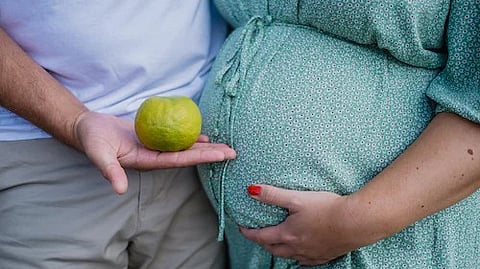

Rutgers researchers traced this link from mother to child in mice with an experiment that began by letting some mice get obese on unlimited high-fat food during pregnancy and breastfeeding while keeping others slim on limitless healthy food. They found that mice born to obese mothers stay slim in adulthood on unlimited healthy food but overeat more than mice born to lean mothers when given access to unhealthy food.
The findings indicate that while people whose mothers were overweight during pregnancy and nursing may struggle to moderate their consumption of treats, they could safely eat their fill of healthy foods.
The study may also help inform the development of brain-altering drugs that reduce cravings for unhealthy food.
“People born to overweight or obese mothers tend to be heavier in adulthood than people born to leaner mothers, and experiments like this suggest that the explanation goes beyond environmental factors such as learning unhealthy eating habits in childhood,” said Mark Rossi, a professor of psychiatry at Rutgers Robert Wood Johnson Medical School and senior author of the study. “Overnutrition during pregnancy and nursing appears to rewire the brains of developing children and, possibly, future generations.”
In the experiment, researchers gave the high-fat food to three sister mice and the healthy chow to another three of their sisters. Once breastfeeding was complete, the researchers turned their attention to the nearly 50 pups — who predictably started at heavier or lighter weights, depending on their mom’s diet.
Their weights converged (at healthy levels) after all the pups received several weeks of unlimited healthy chow, but they diverged again when the researchers offered them constant access to the high-fat diet. All the mice overate, but the offspring of overweight mothers overate significantly more than the others.
Further analysis indicated that the differing behaviors probably stemmed from differing connections between two parts of the brain — the hypothalamus and the amygdala — that arose because of differing maternal nutrition during pregnancy and breastfeeding.
The study has mixed implications for people born to overweight mothers who struggle with their own weight. On the one hand, it suggests the possibility of staying lean while eating healthy food to satiety and avoiding junk entirely. On the other hand, it suggests that efforts to eat moderate quantities of unhealthy treats may spur overconsumption and obesity.
Looking forward, the study’s finding about disrupted brain circuits in the two groups of mice may help inform the creation of drugs that would block the excess desire to consume unhealthy foods.(PB/Newswise)
